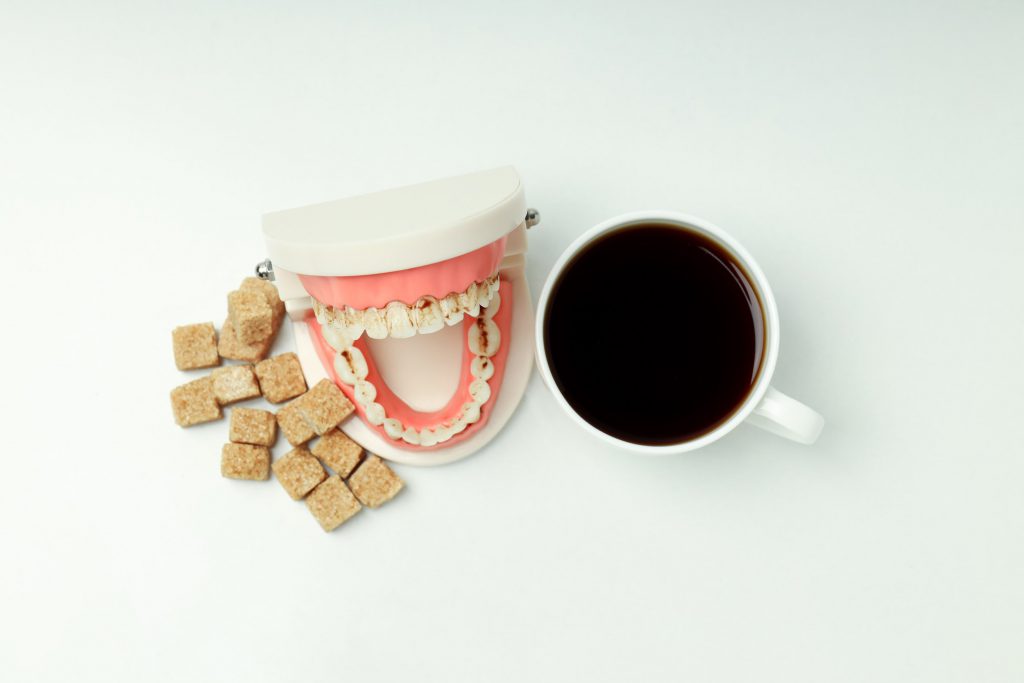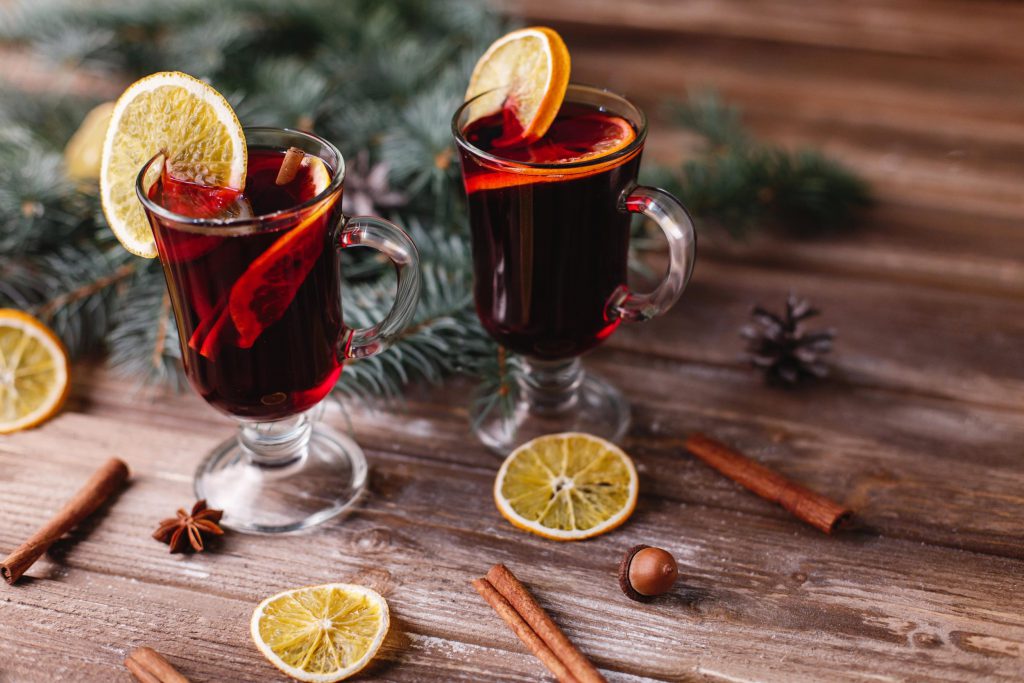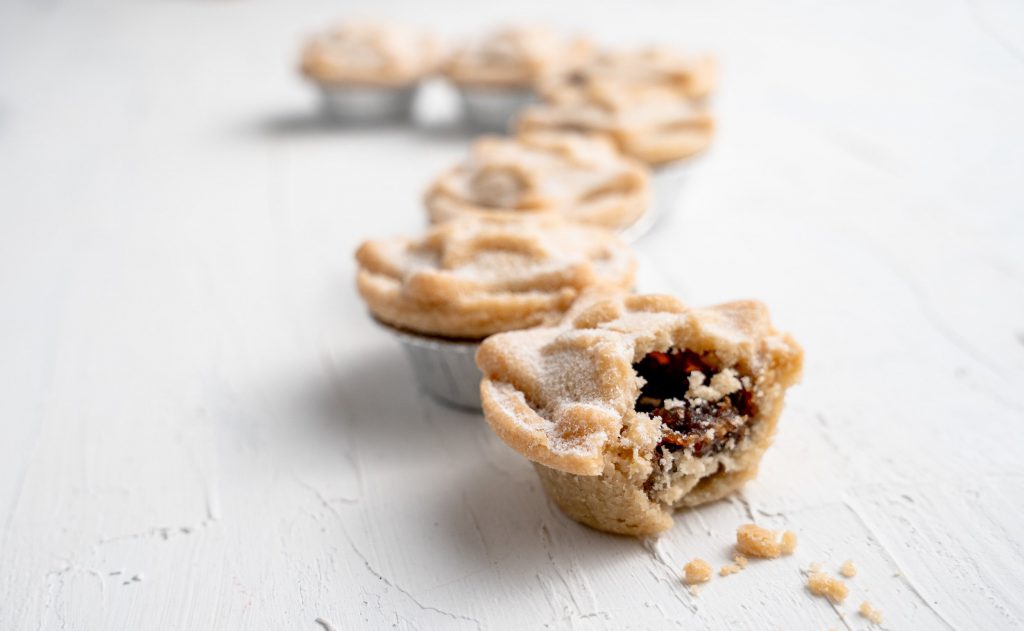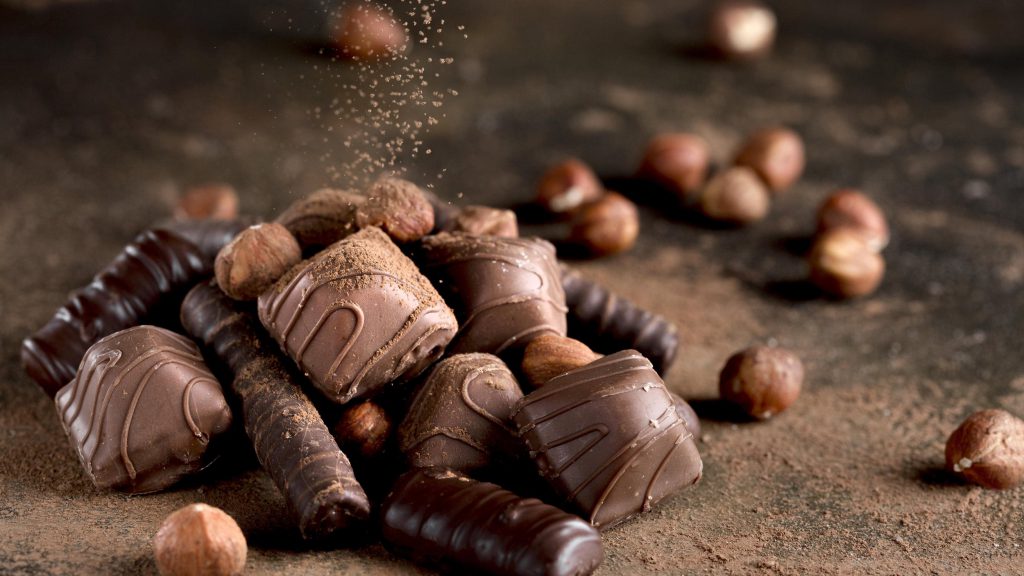Having fresh teeth is as wished for as a white December, but this is the worst time of year for your mouth, as any dental specialist will tell you. This isn’t surprising considering it’s the time for fragrant mulled wines and deliciously sugary sweets, and it’s no secret that December is a universal free pass for overindulgence – especially since it helps us cope with the freezing cold.
Additionally, oral hygiene tends to take a turn for the worse. Women have been reported to consume nearly 50% more sweets and sugary drinks without changing their cleaning habits. This means that with the increase in snacking and the same level of brushing, more people will experience plaque build-up, tooth decay and eventually tooth loss. Even though non-removable teeth over dental implants perfectly restore lost teeth, prevention is preferable to treatment.
There’s nothing wrong with eating foods that may be bad for your teeth, the only thing that’s important is to keep on top of brushing them. Now I hear you asking, “What kinds of food and drink should I avoid this season?”
Well here’s the answer..
Contents
Foods and drinks to avoid during the holidays
We all know that eating is comforting, but foods that are traditionally teeth-destroying come out at this time. Some of the favourites are:

Mulled Wine
One of the classics, nothing beats coming back from a wintery stroll or finishing off a hot meal on a cold night than wine stewed with fruits and spices. It’s obvious though that the main ingredient in mulled wine is the most problematic for our teeth because alcohol raises the acid levels in your mouth, which can lead to increased tartar, cavities and mouth sores which can then become infected. Even though it feels like a warm hug, wine, especially the red variety is known to stain your teeth.
The other negative factor is the added sugar, which can promote bacterial growth and cause tooth decay.
Traditionally, a festive orange is added to the mixture which means there’s an added element of citric acid, which heavily contributes to enamel erosion and ultimately, sensitive teeth.
All these factors can really wreak havoc on your dental health, and we all know how hard it is to get an appointment with the NHS.

Sugar Canes
A classic symbol of Christmastide and the perfect sweet for a minty-fresh breath, these bonbons become as common as colds during December. Be that as it may, these are definitely one of the treats to avoid because they’re terrible for your teeth.
The rock-like quality of the sweet means that it takes a while to eat, which lets the sugars coat your teeth for a long time, which will increase your chance of developing cavities. Cavities form when acidic foods erode the outer layer of your teeth, commonly known as enamel. Once this erosion happens, tiny holes appear on the tooth in which bacteria can thrive until it causes irreversible damage.
Not only that, but its toughness could risk chipping your teeth which could make developing cavities ever more likely.

Dried Fruit
Another common food at this time of year is dried fruit which is usually hidden in cakes and pies. Yes, it’s true that dried fruits are healthier than usual sweets. However they’re still damaging to your teeth because they’re high in sugar and tend to be quite sticky. This is the reason they latch onto a tooth or a crevice in a gum and create an environment for rot to set in.
We’re not discouraging you from eating dry fruits because the health benefits are superb. One piece of advice that would not be bad for your teeth is to chew some sugar-free gum after eating. This also has the bonus of decreasing the cause of bad breath by clearing the build-up of food and stopping the growth of bad bacteria.
Sugary or Bubbly Beverages
We might sound like a broken record, but the most important thing to watch out for at this time of year is the sugar content in drinks. So if you’re thinking of having a nice hot chocolate or a sugary builder’s brew, maybe swap them for healthier alternatives such as:
- Warm glass of milk
- Unsweetened green tea
- Unsweetened white tea
Caramels and Toffees
 A staple treat in most British households, toffees and caramels are essentially just cooked sugar with added cream and butter. The chewiness means that the teeth get put through a lot of strain, which wears down the enamel and slots sugar and cream in the slits of your teeth. These are just a few that are specific for this time of year, but check out this list for 5 habits to avoid in general:
A staple treat in most British households, toffees and caramels are essentially just cooked sugar with added cream and butter. The chewiness means that the teeth get put through a lot of strain, which wears down the enamel and slots sugar and cream in the slits of your teeth. These are just a few that are specific for this time of year, but check out this list for 5 habits to avoid in general:
This is where hot tea and flossing comes in handy, because the sugars will lodge in almost impossible-to-clean places, which is why it’s important to choose the correct tools for washing.
Speaking of which…
How to choose the right toothbrush
Choosing the right toothbrush is almost as vital as actually cleaning your teeth, which is something more and more people have been taking notice of recently. Research has shown that a staggering 67% of people across the UK have now purchased an electric toothbrush and this percentage is only increasing.
According to Golden State Dentistry, the three main factors to consider before choosing a toothbrush is…
- Bristle texture
- Head size
- Powered toothbrush.
Bristle Texture
The most recommended toothbrush to have is one with soft bristles. These kinds of toothbrushes aren’t coarse so they’ll clean your gums by massaging rather than scrubbing which is much more helpful in maintaining healthy gums and teeth, especially if you have eroded enamel or sensitive gum lines.
A hard-bristled brush has the advantage of removing more plaque from your teeth, but if you brush too hard you can wear away the protective covering. You’ll also cause your gums to recede which will increase your sensitivity to both hot and cold foods.
Small head
They always say that bigger is better, but in this case, smaller is smarter. Toothbrush heads come in a range of shapes and sizes, the most effective ones are small and diamond-shaped. The shape and size helps the toothbrush become more comfortable in your mouth and will help you reach those awkward nooks and crannies.
A smaller head also promotes teeth brushing by making it more comfortable and reducing the gag reflex than can happen if you clean your tongue too far. (Yes, remember to brush your tongue too!)
Powered toothbrush
There’s nothing wrong with a manual toothbrush, some people prefer it. However an electric toothbrush can remove much more plaque with very little effort. The constant swirling means that you can use the rest of your arm energy to reach those places that would normally be impossible to brush without sacrificing any brushing power.
Furthermore, most automatic toothbrushes come with an inbuilt two-minute timer which will help you brush your teeth for the recommended amount of time.
Each toothbrush is different, so it’s essential to choose the best one for you. Some additional aspects to consider would be the grip, the design and its feel because in the long run, the choice comes down to your preference and comfort.
Foods and drinks not to avoid during the holidays
Now it’s not all doom and gloom, there are some delicious holiday treats that encourage strong and healthy teeth.
Number one is probably the favourite:
Cheese
A cheeseboard is a must during the festive season, and the best part about it is that cheese is fantastic for healthy teeth! The high levels of calcium found in cheeses like cheddar, parmesan, Edam and Gouda will keep your teeth strong and stable. Cheese in general is an alkaline food which stops acid from forming in your mouth and instantly reduces the chance of dental decay.
Milk
Similarly to the first, milk and cream are really good for your teeth for exactly the same reason as cheese, it’s extremely high in calcium. Milks and creams after pasteurisation tend to be very slightly acidic so it’s best to drink a little water after some milk.
Dairy is also a good whitening agent and can aid in the removal of stains on teeth.
Nuts
All nuts are fantastic for your health, unless you’re allergic, in which case please don’t eat any! But generally, nuts are very high in protein and calcium and low in sugar and fats, as well as not being too difficult to chew.
The best choice of nut to go for are almonds because they’re great for on-the-go snacking. Just be sure not to go for the honey roasted or sugared ones, this drastically decreases their healthy qualities.
Dark Chocolate:

Although this may sound controversial because chocolate is often seen as the enemy, dark chocolate is actually good for you! Milk and white chocolate are the most popular kinds, which is why chocolate has been related to rotting teeth and diseases such as diabetes, however this is only due to the very high sugar content.
Dark chocolate contains many antioxidants that support healthy gums and reduce the formation of cavities. It’s also a good source of polyphenols, which are natural chemicals that limit the production of oral bacteria.
Apples:
Apples have often been described as nature’s toothbrush because they’re fantastic for keeping your teeth clean. Their skin helps remove plaque build-up and stimulates the gums so that they produce more saliva, thus reducing the acidity of your mouth.
It turns out that an apple a day keeps doctors and dentists away!
Vitamins are invaluable for the health of your teeth, you can find out more about their benefits on our page!
In conclusion
The holiday season is supposed to be enjoyed and celebrated, so there’s no shame in treating yourself. The only thing to keep in mind is to make sure you’re on top of your oral hygiene, all these sugary treats and hot drinks are delicious but can no doubt be detrimental to your teeth.
Remember this one piece of advice, brushing twice a day keeps the dentist away!


